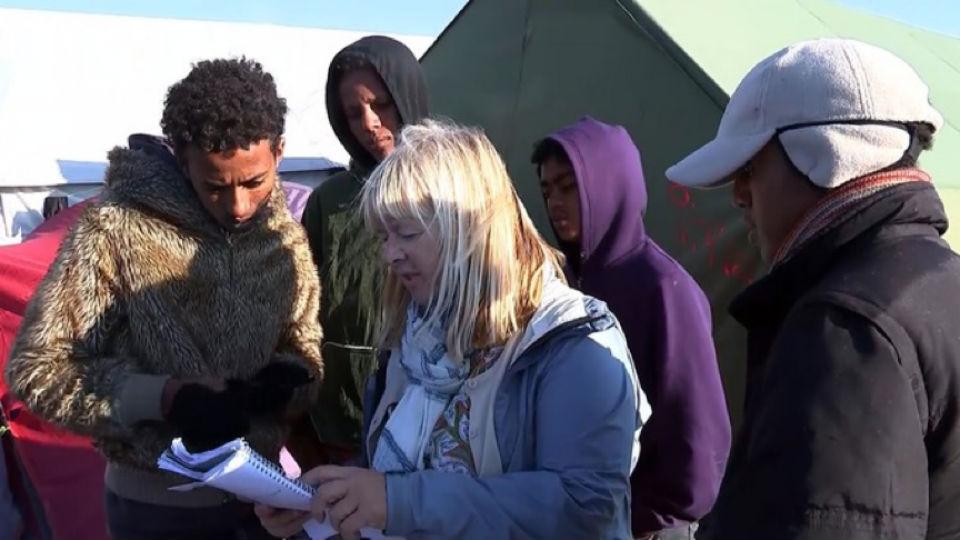Documentary hailed after asylum seeker Judicial Review
Primary page content
A documentary made by a Goldsmiths academic played a “crucial” role in bringing to light the cases of child asylum seekers, according to lawyers challenging the Government over immigration rules in the High Court.

Professor Clayton talks to asylum seekers in the Calais Jungle camp
Professor Sue Clayton’s work Calais Children: A Case To Answer, which charts the plight of children in the migrant camp known as the Jungle, was cited by lawyers who launched a wide-ranging Judicial Review claiming that the Home Office’s interpretation of the “Dubs Amendment” was unlawful.
A ruling handed down last week criticised the Government for failing to implement the Amendment, which was supposed to offer a lifeline to children at severe risk in Europe.
It was found to be unlawful that the Home Office had not made clear its criteria for protection, and also said the Home Office was in breach of its duty of candour about its failure to give reasons for refusing to allow an asylum seeker known as ZS to transfer to the UK from France.
Lawyers from Duncan Lewis Solicitors say they will now seek to appeal over ZS seeking protection in the UK – and said the judgement represented two “significant victories” which should impact positively the lives of young asylum seekers who have remained at risk.
Duncan Lewis Director of Public Law Toufique Hossain said of Professor Clayton: “We would like to thank you again for inviting us to the Calais camps to take on ZS's and other cases, and initiating the move to bring this shocking situation as a public law challenge.
“Your film provided crucial evidence for the above points: showing how young people were not properly processed, and how they and their advocates were left with no clear guidance as to how to apply for protection under UK law.”
He added: “The Judgment we have secured will, we hope, make significant changes in the way the Home Office processes refugee children and will mitigate some of the extreme suffering they have experienced, as they and we continue to pursue justice.”
Professor Clayton said: “It was incredible that out of the film’s evidence came this High Court challenge. I lived in and researched the Calais Jungle and found all these kids with a legal right to be in the UK under the Dubs Amendment.
“But without legal representation they didn’t stand a chance: no-one even knew they existed, let alone supported their claims. Over half the places available for Dubs children in the UK remain un-filled because the Home Office obscured the system for applying, Happily, that will now change.”
- Professor Clayton is hosting a screening of Calais Children: A Case to Answer and a Q&A panel discussion on campus as part of the College's Refugee Awareness Week. RHB 137A, 6-8.30pm, Tuesday 5 February 2019.